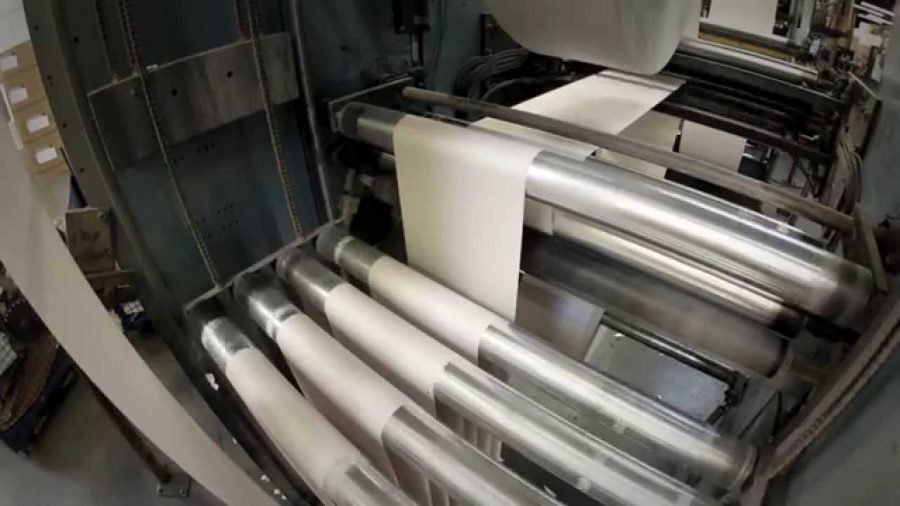North American trade wars escalate with paper tariff
The paper tariff has forced many printing presses to raise prices.
December 15, 2018
NAFTA, signed by President George W. Bush, Mexican President Salinas, and Canadian Prime Minister Brian Mulroney in 1992, was meant to reduce or eliminate tariffs on most products imported between the three countries.
Signing this allowed most goods made in Mexico and Canada to be sold to consumers for low prices. 26 years later, that changed.
On August 9, the International Trade Commission (ITC) reversed President Trump’s decision to impose tariffs on uncoated groundwood paper (newsprint) from Canada.
The initial decision to impose the tariff came about after the North Pacific Paper Company, a paper mill in Washington State, complained that the subsidies the Canadian government was providing to its manufacturers harmed American paper companies.
President Trump claims that this tariff, along with other tariffs he is imposing on steel and aluminum, is for the good of the American people. He insists that this is his way of securing American jobs. Many people disagree with the President’s point of view.
Amongst those who disagree with President Trump are the Canadian government, several small newspapers, and the ITC. The unanimous decision to overturn the tariff was made by the five-member body of the ITC. This is generally perceived as a win for small and medium size newspapers, which have struggled to absorb the cost of higher newsprint and have had to lay off several of their employees.
The ITC determined that importing newsprint from Canada was helping rather than harming the newspaper industry. Trump’s policy of imposing tariffs on many materials imported from other countries is controversial.
Those who support it tend to believe he is protecting American jobs rather than sending them overseas.
Those who oppose the tariffs tend to believe that it harms international relationships with other countries; sometimes leading them to want to impose tariffs on the United States, such as China has threatened to do.
Furthermore, those opposed do not believe that it generally safeguards American jobs.
Many American jobs, such as those in the newspaper industry, depend upon relatively inexpensive.

